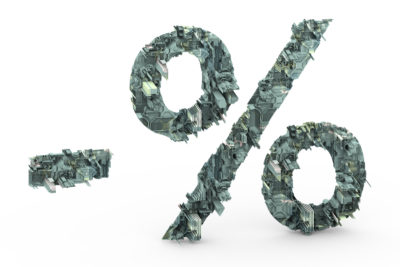The contractionary, contradictory nature of negative interest rates
A negative interest rate imposed by a central bank on reserve balances of commercial banks is not an interest rate at all. It is a tax. As such, like all taxes, it transfers resources from the private sector to the government sector and has a contractionary effect on economic activity. The European central banks and the Bank of Japan should admit their mistake and eliminate this innovative approach to taxing their banking companies.[1]
The “theory” behind the notion of ‘negative interest rates’ is that cutting interest rates from 4 percent to 3 percent, then from 3 percent to 2 percent and all the way to zero is stimulative to economic activity–lower costs of borrowing will induce businesses and households to borrow more and spend more, yielding a boost to national aggregate demand. As good as that may sound, there are lots of problems with the implementation–not least because the interest rate controlled by central banks does not always influence market-determined interest rates in a predictable way.
Whatever the merits of that theory, there is a disconnect when the administered interest rate hits zero. Even if reducing the administered rate from 1 percent to zero produced a stimulative effect to borrowing and spending, it does not follow that moving from 0 percent to minus 1 percent would be more stimulative. That is because cutting a positive interest rate is a reduction in the cost to commercial banks incurred when they borrow from the central bank or from each other. However, the below-zero interest rate imposed on cash balances of commercial banks held at the central bank directly reduces bank earnings. It is a tax on the holding of liquid balances.
It is especially ironic that supervisors and regulators of banking companies are implementing mandates for higher “liquid cash reserves” while the monetary policymakers are imposing a new tax on the holding of the most liquid of all reserves–deposits at the central bank! Do these guys talk to each other? Imagine that the government told me that I have to keep a higher minimum balance in my checking account, then imposed a tax on the amount I keep in my checking account? Does anyone think that would be a sensible set of policies?
Imagine that the politicians and monetary policymakers who advocated the imposition of this new form of taxation on bank reserves had instead favored a new surtax imposed on commercial bank net interest income. Would anyone believe that such a tax would induce banks to increase their lending? How about a higher tax on bank profits? Does that sound like it would stimulate the economy? It is well understood that raising taxes is a restrictive policy option. A new form of taxation–even if packaged as a ‘negative interest rate’–has a clearly contractionary effect on economic activity.
As financial intermediaries, banks focus on their net interest margins–the difference between the interest expense they pay to depositors and other investors versus the interest income they receive from borrowers. A tax imposed on idle cash balances held at the central bank can only be paid in one of three ways: higher interest charged to borrowers, lower interest paid to depositors and other lenders, or lower returns to the investors in the business of banking. Whatever the ultimate incidence, it is not conducive to more borrowing and spending by anyone.
Those central banks that experimented with this flawed notion in 2016 have done serious damage to their economies. Stock market valuations of bank shares have fallen, banks have sought other ways to restore interest margins, interest income of bank depositors have declined, and currency exchange rates have reflected the contractionary effects of this new taxation of the banking business. It has been a failure and should be buried as a bad idea and removed from the policymakers tool kit for all time.
[1] It appears that some sensible people in central banks are starting to see the error of the policy: http://www.wsj.com/articles/ecbs-praet-says-weak-bank-shares-create-danger-1475571857?mod=europe&mod=djemITPE_h










